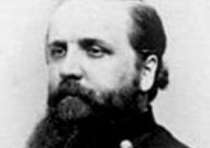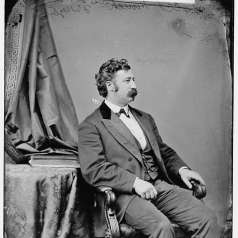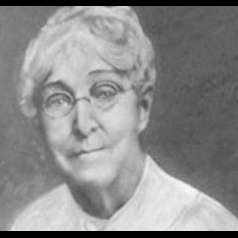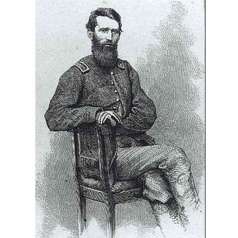
When the Bureau of Refugees, Freedmen, and Abandoned Lands was established under the U.S. War Department in 1865, President Abraham Lincoln proposed General Clinton B. Fisk as an appointee. The appointment was not made prior to Lincoln's assassination, but Andrew Johnson, as 17th president, appointed Fisk as senior officer in charge of the bureau in Kentucky and Tennessee.
Fisk's commitment to securing civil rights for the emancipated African Americans during Reconstruction resulted in, among other things, Nashville's Fisk University, which he endowed with $30,000 and which bears his name.
Fisk, born December 8, 1828, in Clapp's Corner, New York, was the son of Benjamin and Lydia Fisk. His youth in Michigan was divided between voracious reading and boating with his father on Lake Michigan. In 1848 he married Geanette Crippins, the daughter of a Missouri business associate.
Fisk's military career began with the Missouri Home Guard, a private army organized to oppose the secession movement during the late 1850s. After America became embroiled in civil war, Fisk joined the U.S. Army on July 26, 1862, and was commissioned a colonel on September 5. After the war and Tennessee's full restoration to the Union in 1866, General Fisk, working through the Freedmen's Bureau (1865-72) and the American Missionary Association, helped establish the first free schools in the South for both white and African American children.
Tools
Key Facts
- Worked to secure rights for emancipated slaves.
- Endowed Fisk University in Nashville.





